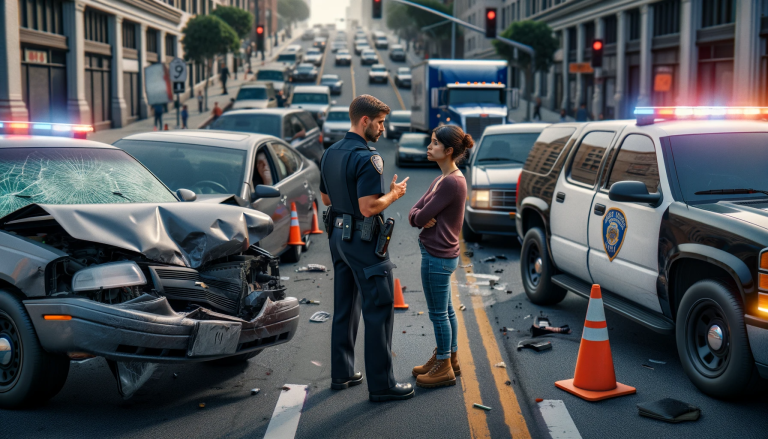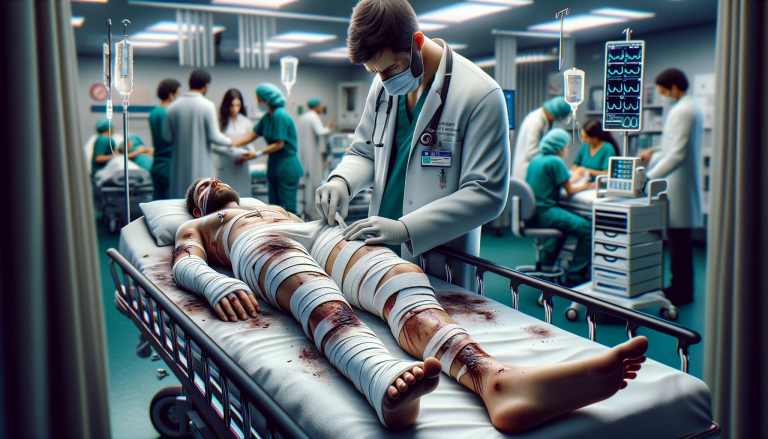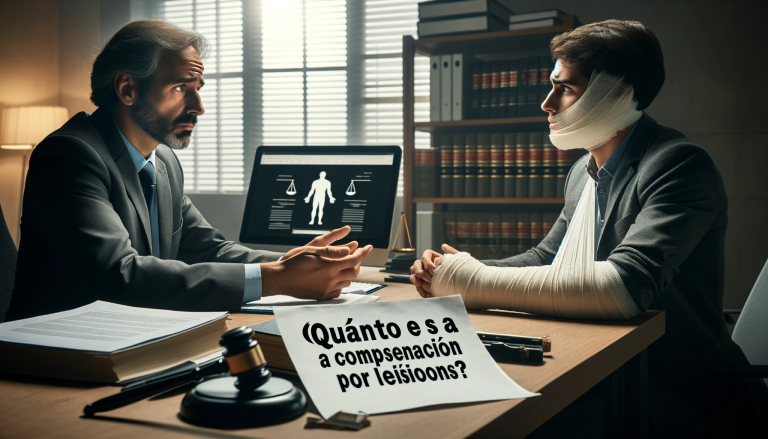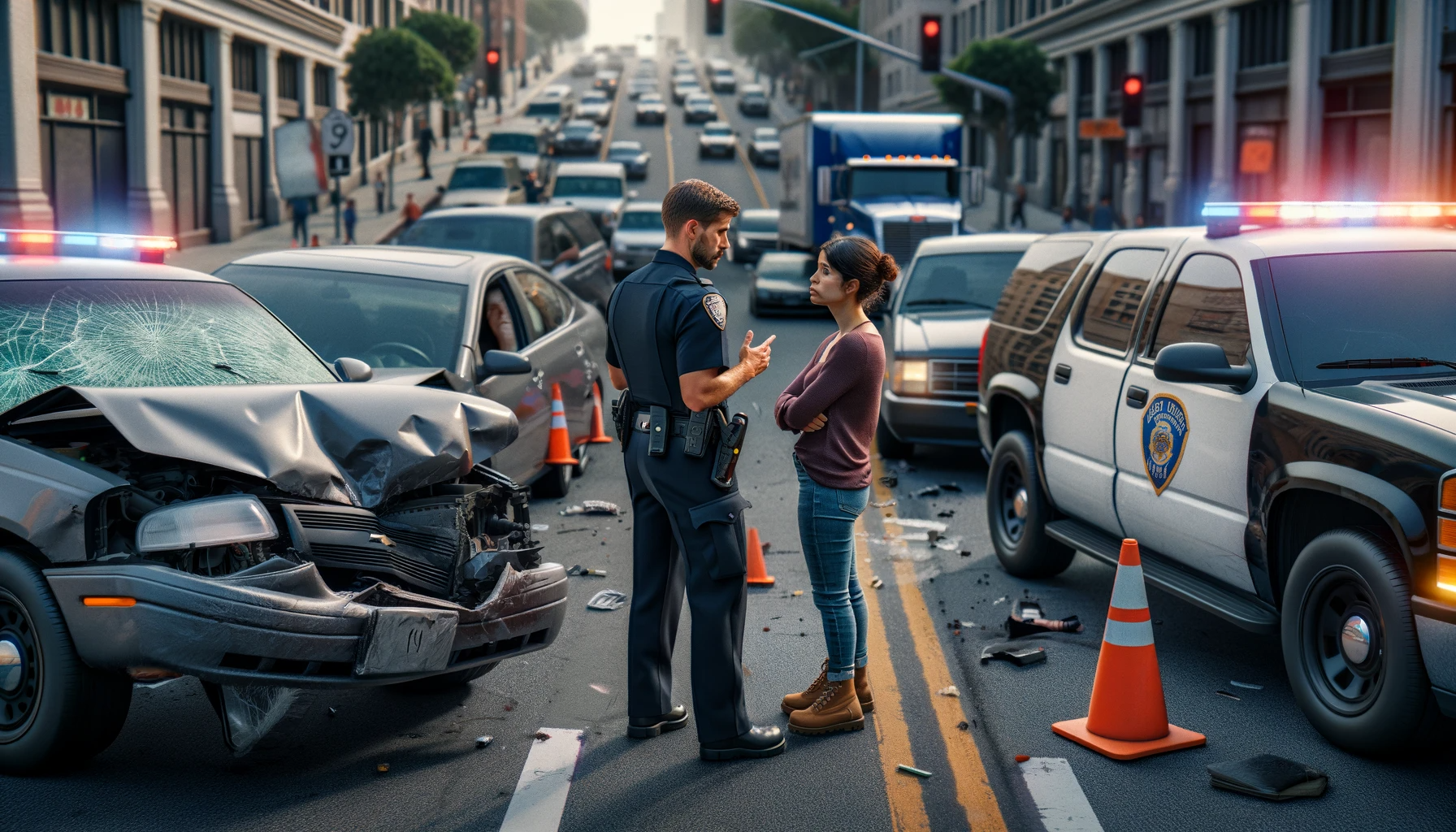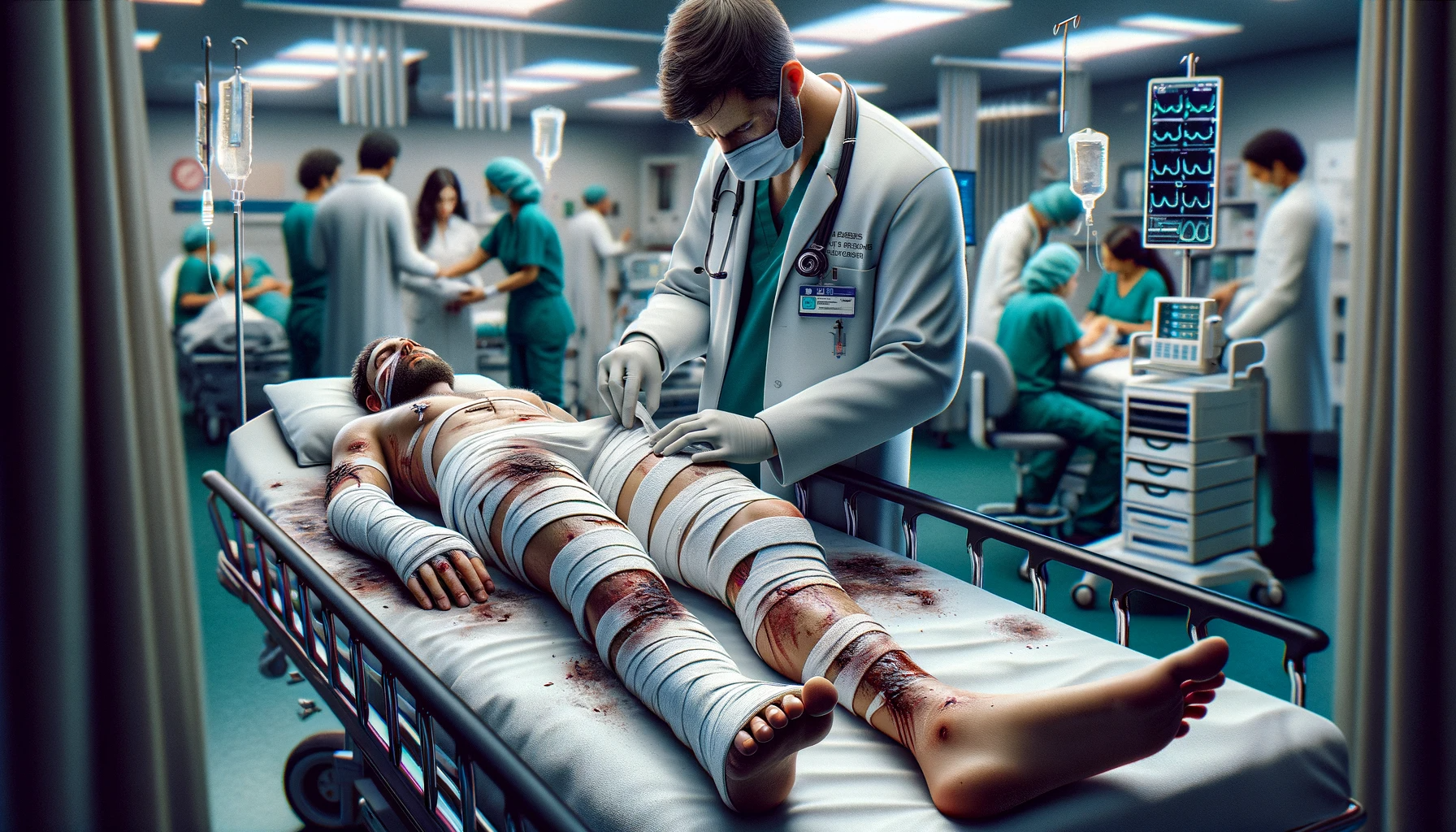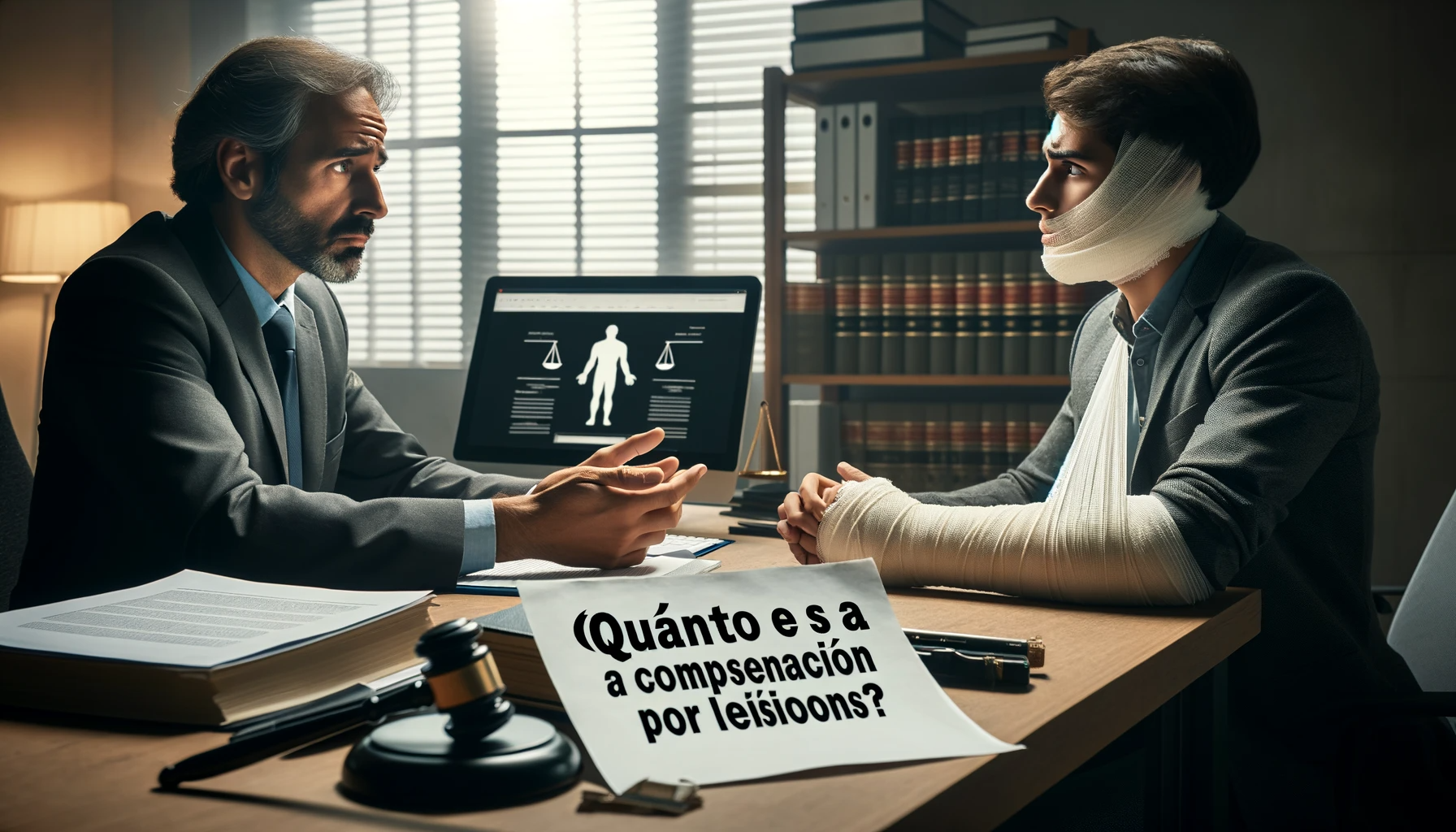Decoding Traffic Accident Claims
A traffic accident claim is a formal request to an insurance company for coverage or compensation for damages sustained in a traffic accident. These claims include property damage to vehicles and physical
Injuries to the driver or passengers. The purpose of the claim is to receive reimbursement based on the policyholder’s coverage when the mishap takes place.
Claims after a traffic accident can be generally of two types - first-party claims and third-party claims. First-party claims are those filed with your own insurance company. On the other hand, third-party claims are those submitted to the insurer of another party involved in the accident. In most cases, the nature of the claim depends on who is at fault, the type of coverage you have, and the laws of your specific jurisdiction.
Process of Filing Traffic Accident Claims
To initiate a claim, you need to notify your insurance company about the accident as soon as possible. You will be required to provide all related details including date, time, location, any witness information, overall circumstances, etc. Typically, an insurance adjuster will inspect the vehicle damage and offer a settlement amount based on the loss estimation. If health injuries are involved, you may be asked to submit relevant medical records and bills for compensation evaluation.
Evaluating Compensation in Traffic Accident Claims
The compensation you might receive from a traffic accident claim can cover various expenses. This includes repair or replacement cost of the damaged vehicle, medical expenses for treating
Injuries, compensation for lost wages if the injury keeps you from work, and even pain and suffering damages in some cases. Keep in mind that compensation heavily depends on the extent of documented damage or injury, the specifics of your insurance policy, and the insurance company’s assessment.
Sometimes, the resolution of a traffic accident claim might require legal intervention. If the disputed amount is high or the involved parties cannot agree on the fault or damage, legal proceedings might be necessary. In such cases, it’s often advisable to consult with an experienced attorney who specializes in traffic accidents and related claims. Laws regarding these claims can vary widely from place to place, making it essential to understand your legal rights and responsibilities.
Types of Compensation in Traffic Accident Claims
Financial Reimbursement for Physical Damages
Physical damages to your vehicle or personal items is one of the most straightforward types of compensation you can receive in traffic accident claims. It involves compensation for repairs or replacements necessary due to the accident. This includes damages to your car, motorcycle, bicycle, or any other type of personal property damaged in the incident. Documentation such as repair bills, photos of the damage, and valuation reports can be useful to substantiate these claims.
Medical Compensation Expenses
Another common type of compensation is for medical expenses arising from
Injuries sustained during the
Traffic accident. This can cover a wide range of costs including hospital bills, medication, physiotherapy, surgery, assistive devices, and even future medical expenses if ongoing care is required. Medical reports, doctor's notes, prescriptions, and detailed bills are often needed to authenticate these claims.
Lost Wages and Loss of Earning Potential
If the accident resulted in an inability to work, either short-term or long-term, victims may be eligible for compensation covering the income lost during this period. This not only accounts for actual lost wages, but may include loss of future earnings if the victim’s capacity to work and earn has been negatively impacted. Evidence such as pay stubs, tax returns, and letters from your employer can substantiate these claims.
Pain and Suffering Damages
Pain and suffering entail the physical pain and emotional distress a victim endures as a result of the accident. Quantifying these claims can be intricate as they are somewhat subjective and may require comprehensive medical and psychological evaluations. While it's challenging to monetize, courts acknowledge the reality of such suffering and offer redress accordingly.
Loss of Consortium
In
Traffic accident claims, loss of consortium is a type of compensation that refers to the loss of companionship or association, especially in cases where the accident has affected the victim's relationship with their spouse or family. The law recognizes that serious incidents can drastically impact family dynamics and provides compensation for this immeasurable loss.
Medical Expenses and Rehabilitation Costs
Understanding the Claim for Medical Costs
In a traffic accident, the immediate care and treatment required can be quite expensive. If the accident resulted in
Injuries that necessitate emergency services, hospital stays, surgeries, consultations with specialists, or any other form of medical treatment, these expenses can be claimed. The claimant should keep a record of all medical bills and receipts as these will provide essential evidence when claiming these costs.
Stay and Treatment at the Hospital
If the severity of the
Injuries requires a lengthy stay at the hospital, the costs can mount quickly. Any costs related to hospitalization, such as room charges, medications, diagnostic tests, and professional fees for physicians and surgeons can be claimed. Itemized bills obtained from the hospital can serve as solid proof of these expenses.
Long Term Treatment Costs
Sometimes, accidents result in injuries that require extended treatment and rehabilitation, such as physiotherapy, occupational therapy, or mental health services. These treatments often extend beyond the immediate aftermath of the accident. It's possible to claim for these long-term treatment costs, provided they are directly related to injuries caused by the
Traffic accident.
In-Home Care and Equipment
Severe
Injuries might also necessitate in-home care or the use of assistive equipment, such as wheelchairs, ramps, and modifications to the home. In some cases, this could also include hiring a nurse or caregiver. These expenses are also claimable under this category, provided they are medically necessary and directly related to the injuries suffered in the accident.
Claiming for Future Medical Expenses
In the event of serious accidents where the victim may require medical aid in future, it is possible to claim for anticipated medical expenses. Qualified healthcare professionals can provide a prognosis of the expected future medical needs, which can then be included in the claim. However, it's vital to note that these claims require substantial evidence to justify the anticipated costs.

Lost Wages and Future Earnings
Understanding Lost Wages
When you're involved in a traffic accident, one of the immediate financial impacts can be lost wages. This includes any income you would have earned had the accident not occurred and you were able to work as usual. Often, victims are forced to take unpaid leave as they recover physically and emotionally. This can result in significant financial strain, particularly for those without sick or holiday pay.
Calculating Lost Wages
To calculate lost wages, you need to determine how much time off work was necessitated by the
Accident. This includes both full days and partial days where you had to leave early or arrive later than usual. Then, multiply this figure by your standard hourly wage or daily salary rate. Additional factors may include missed opportunities for overtime, promotions, or bonuses that were expected but not received due to the accident.
Income from Self-Employment
If you are self-employed and have suffered a traffic accident, compensations for lost earnings can be more complex. Typically, courts will look at the net income (income after expenses) you would have earned during the recovery period. This is often calculated based on historical income data from previous years. Legal assistance may be required to assess and claim this type of loss accurately.
Loss of Future Earnings
In cases where a traffic accident results in long-term disability or a permanent inability to work, victims can also claim loss of future earnings. This involves a more intricate calculation that takes into consideration factors such as your age, skill level, life expectancy, and projected future earnings. A financial expert is often essential in such cases to project the financial loss accurately, taking into account inflation and potential salary increases.
Documentation for Wage Loss Claims
Claims for lost wages and future earnings should be verified with proper documentation. This can include medical records, pay stubs, tax returns, and letters from your employer. For self-employed individuals, business records, invoices, and financial statements can serve as proof. It's important to keep all documentation related to your case to optimize your claim's potential success.
Pain, Suffering and Emotional Distress Damages
Understanding Damages for Pain, Suffering and Emotional Distress
When an
Accident occurs, there's a significant psychological impact that often accompanies the physical
Injuries. These are referred to as damages for pain, suffering, and emotional distress. They compensate for the mental hardship a victim may endure post-accident.
Categorization of Distress-related Damages
The damage awarded for pain and suffering is separated into two categories: Physical pain and suffering and mental pain and suffering. Physical pain and suffering refer to a claimant's physical injuries, including prolonged pain or discomfort. Mental pain and suffering can result from the physical injuries but also includes emotional and psychological damage such as fear, insomnia, mood swings, or even post-traumatic stress disorder (PTSD).
Calculating Damages for Pain and Suffering
The calculation of these damages tends to be subjective and hinges on the specific facts of each case. Jurors and insurance companies consider factors like the nature of the
Injury, the severity of the pain, and the length of time the victim is expected to suffer. In some jurisdictions, there are 'damage caps' in place which limit the amount that can be awarded for non-economic damages.
Claiming Emotional Distress Damages
To successfully claim damages for emotional distress, it is essential to provide a clear link between your emotional distress and the accident. Evidence might include medical or psychiatric records, testimonies from family members or friends, or expert testimony from a mental health professional.
The Role of an Attorney in Claiming Damages
While it's possible to claim these damages without an attorney, having a skilled legal professional can significantly improve the chances of a successful claim. They can guide you through the complex legal processes, help gather crucial evidence, and argue effectively for the maximum damages for your pain, suffering, and emotional distress.
Property Damage and Other Out-of-Pocket Expenses
Understanding Property Damage
In the aftermath of a
Traffic accident, one of the most visible forms of losses incurred is property damage. This typically refers to any harm caused to your vehicle, though it can extend to other personal belongings that may have been inside the car during the crash. You can seek compensation equal to the cost needed to either repair the damage or replace the damaged items altogether.
Additional Transportation Costs
Often overlooked, additional transportation costs are also a significant part of out-of-pocket expenses following a traffic accident. These costs might involve car rental fees, public transit fares, taxi fees, and more while your own vehicle is being repaired. Depending on the length of time it takes for your vehicle to be fixed or replaced, these transportation costs can add up quickly.
Deductible Reimbursement
In case you had to pay a deductible to your insurance company for your property damage or
Personal injury claim, you might be able to get reimbursed. The deductible amount can often be included in your claim against the at-fault party, letting you recoup this initial outlay.
Personal Property Losses
Traffic accidents can also result in lost or damaged personal items. This could include items such as mobile phones, laptops, clothing, or eyewear that were in the vehicle at the time of the accident. It's important to document these losses carefully, ideally with photos and receipts, to ensure proper compensation.
Loss of Use
Lastly, there's an intangible yet substantial loss known as the 'loss of use'. Simply put, this is the inconvenience experienced due to not being able to use your damaged vehicle. Even if you've secured alternative transportation, it may not fully compensate for the utility and convenience of having your own vehicle. Therefore, monetary compensation for "loss of use" can be included in your claim.

Initial Steps After the Accident
Immediately following a traffic accident, it's crucial to ensure everyone's safety and call for medical assistance if needed. The involved parties should also exchange contact and insurance information. It is equally important to report the accident to your insurance company as soon as possible. If the accident scene has been significantly altered or cleared, evidenced by photographs and immediate notification can be fundamental for your future claim.
Documenting the Incident
Document every detail about the incident. This encompasses gathering information about the other party involved, obtaining witness accounts, recording the specific conditions of the accident, including weather and road conditions, and taking photographs of the scene and any
Injuries sustained. This documentation is invaluable when presenting your claim as it can provide substantive proof of the events that transpired.
Once the initial reactions and documentation processes are completed, it's time to file a traffic accident claim. This procedure typically involves contacting your insurance provider, providing them with the gathered information, and officially stating your intention to seek reimbursement for losses incurred due to the accident.
Role of an Attorney in the Claim Process
If the traffic accident resulted in serious
Injuries or significant property damage, it may be prudent to hire an attorney to represent you. A legal professional can help you navigate the complex legalities surrounding traffic accident claims, negotiate with insurance companies on your behalf, and ensure that your rights are protected throughout the process.
Settlement and Litigation
The final phase of the legal process may either be a settlement or litigation. Most insurance companies will attempt to settle the claim out of court to minimize expenses. However, if the parties cannot agree on a fair settlement, litigation may be necessary. The claimant, with the assistance of their attorney, will need to present their case before a judge or jury who will then make a final decision on the claim.
Conclusion
In a
Traffic accident, various types of damages and losses can be claimed, including medical expenses, lost wages, property damage, and pain and suffering. The specific claims that can be made depend on the circumstances of the accident and the applicable laws in the jurisdiction. It's important to seek legal advice to understand your rights and options for compensation after a traffic accident.
Look for an attorney who has the right legal resources for your legal needs.
Contact us here on the
Warmuth Law website or through our hotline 888-517-9888.
Frequently Asked Questions (FAQ's)
1. What can I claim for in a traffic accident?
- You can typically claim for medical expenses, lost wages, property damage, and pain and suffering. The exact damages you can claim depend on the specifics of your case and the laws in your jurisdiction.
2. Can I claim for emotional distress after a Traffic accident?
- Yes, in many cases, you can claim for emotional distress or mental anguish caused by the accident, in addition to physical injuries. These claims can include anxiety, depression, or PTSD resulting from the accident.
3. How do I prove my damages in a Traffic accident claim?
- To prove your damages, you'll need to gather evidence such as medical bills, pay stubs to show lost wages, receipts for property damage, and documentation of your pain and suffering, such as therapy records or statements from mental health professionals.
4. Can I claim for future medical expenses after a Traffic accident?
- Yes, if you're expected to require ongoing medical treatment or care as a result of the accident, you can typically claim for future medical expenses. This may require expert testimony to estimate the cost of future care.
5. Is there a time limit for making a claim after a Traffic accident?
- Yes, there is typically a statute of limitations for filing a claim after a traffic accident, which varies by jurisdiction. It's important to consult with a lawyer as soon as possible after an accident to ensure you meet the deadline for filing your claim.




